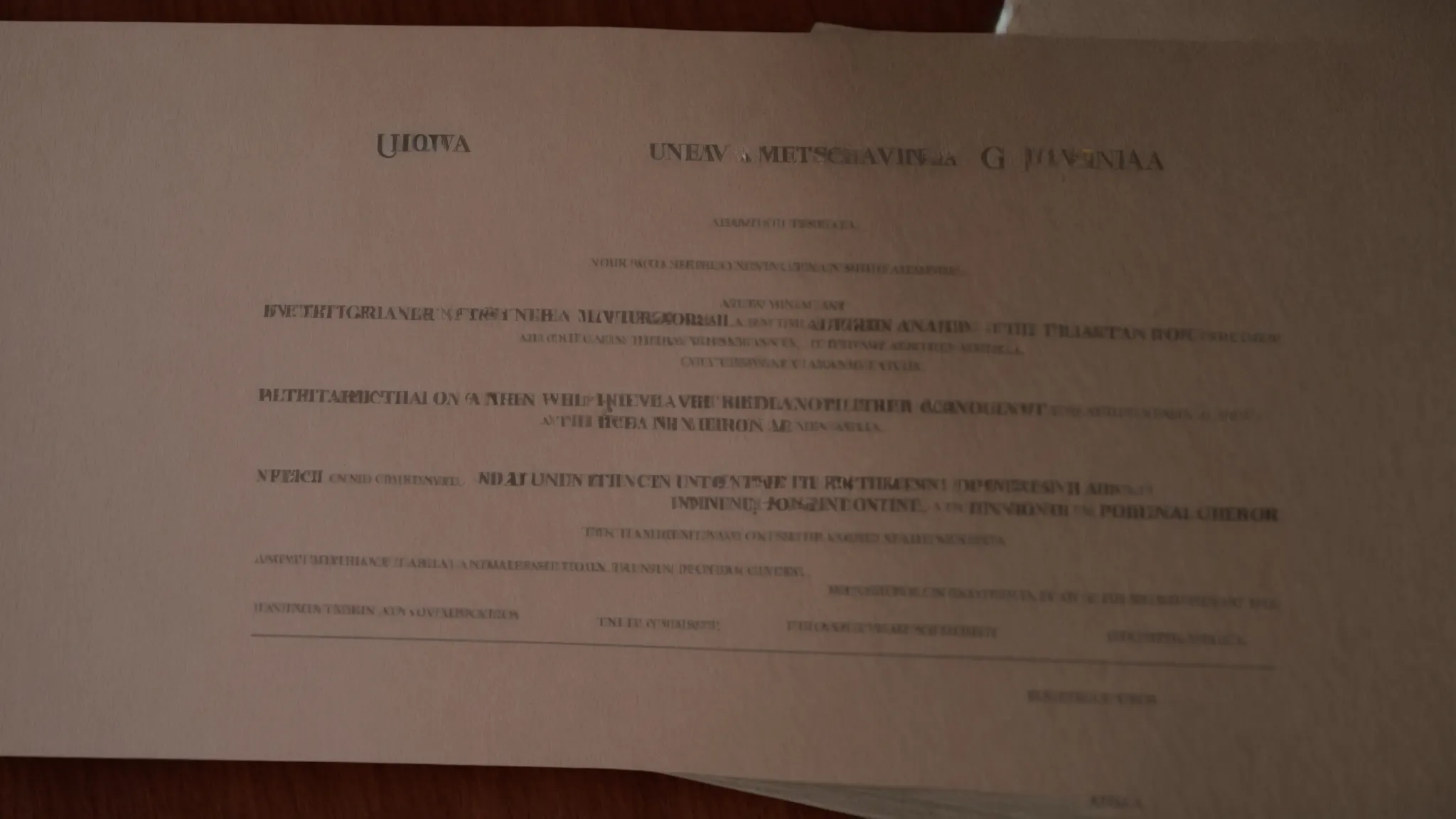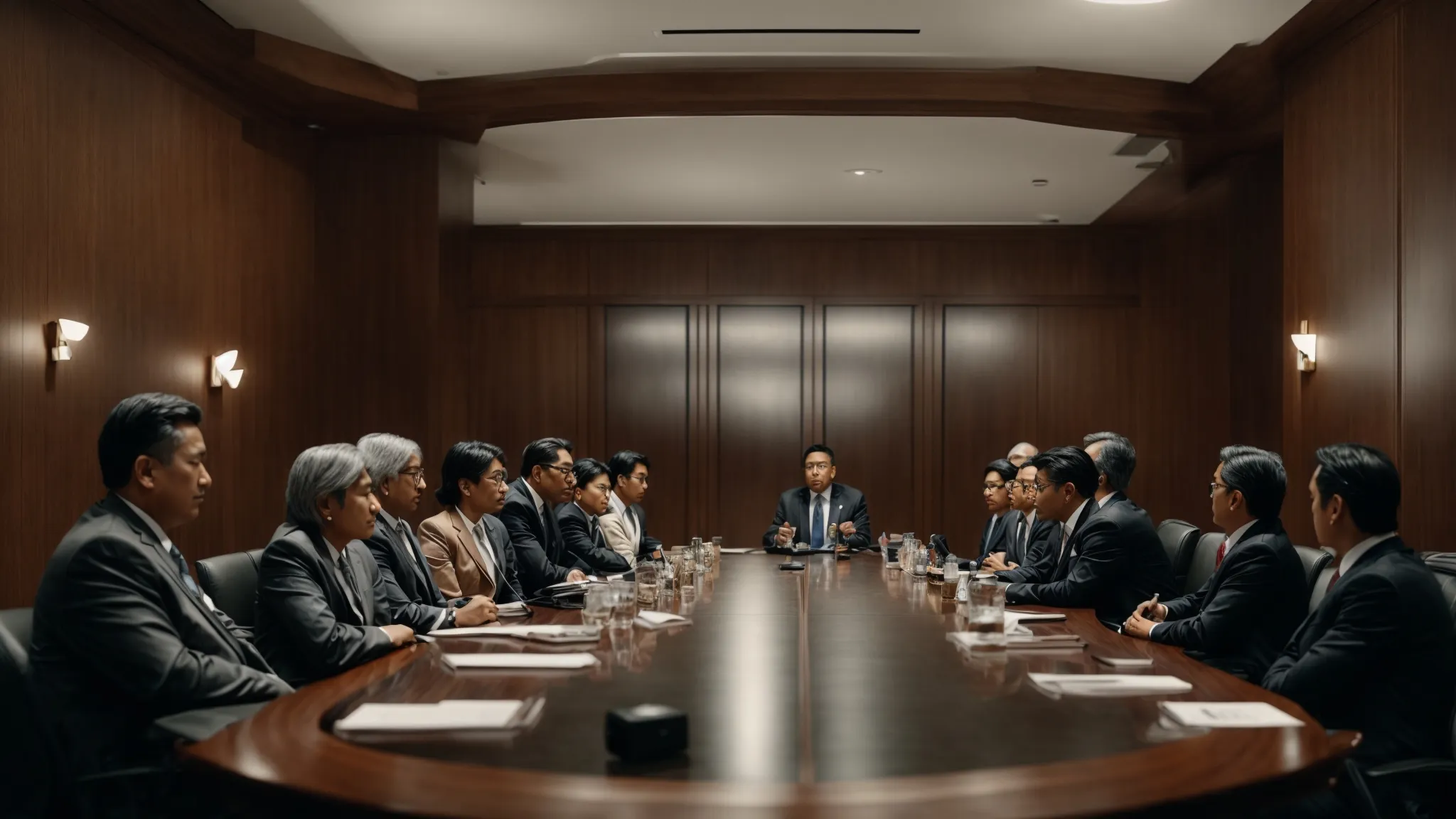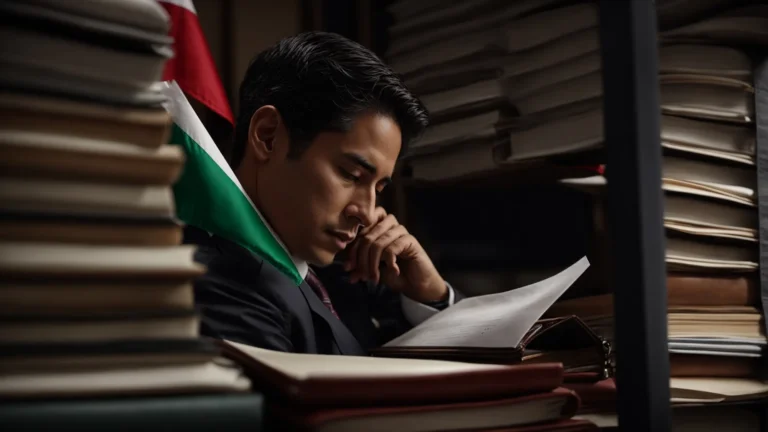Unpacking the Resolution of Metalclad vs Mexico: A Thorough Dissection
The Metalclad vs. Mexico case remains a seminal event that starkly illuminates the intersection of international trade agreements and national sovereignty.
At the heart of the dispute lay allegations of expropriation and breach of the North American Free Trade Agreement (NAFTA) by the Mexican government, which reverberated through the chambers of global arbitration.
Through the rigorous interpretation of complex legal tenets, the arbiter set a precedent that would echo in the conduct of nations and corporations alike.
The outcome not only reshaped the contours of investor protections but also challenged the government of Mexico’s environmental and regulatory authority.
Keep reading to unravel the intricate tapestry of conflicts and resolutions that compose this landmark case.
Key Takeaways
- Metalclad’s Case Against the United Mexican States Highlighted the Tension Between Environmental Protection and Foreign Investor Rights Under NAFTA
- The Arbitral Tribunal Granted Metalclad Compensation, Defining Mexico’s Denial of a Permit as a De Facto Expropriation
- The Distinction Made by the Tribunal Between Legitimate State Regulation and Expropriation Sets a Significant Precedent for Future Investor-State Disputes
- The Metalclad vs Mexico Ruling Emphasized the Need for Precise Treaty Language to Prevent Ambiguities in Investor-State Arbitration
- Environmental Policies and the Sovereignty of Nations Have Become Critical Considerations in the Formulation and Negotiation of International Trade Agreements Post-Metalclad
Understanding the Background of Metalclad vs Mexico

The Metalclad Corporation versus the United Mexican States represents a landmark legal encounter where complex intersections of international law, corporate interests, and environmental concerns came to a head.
This dispute, initiated by the undertaking of a hazardous waste transfer station in San Luis Potosi, delved into the intricate ramifications of foreign investments and their environmental repercussions, leading to heightened scrutiny under the North American Free Trade Agreement (NAFTA).
At the core of this conflict was the expropriation debate sparked by local environmental considerations, juxtaposed against the economic development interests anchored by Metalclad.
Underlying this entire convergence was Metalclad’s motivation to safeguard its investments and Mexico’s intent to ensure regulatory compliance within its jurisdiction, setting the stage for an intense arbitration process.
These elements together framed the oncoming analysis involving investment dispute resolution, the role of governments, and the critical balance between industrial growth and environmental stewardship.
Examining the Origins and Motivations of the Dispute
The Metalclad Corporation, an American enterprise, had sought to expand operations through the acquisition and subsequent enhancement of a waste landfill in the Mexican state of San Luis Potosi. Through this venture, Metalclad expected to not only foster its business objectives but also contribute to the local economy by transforming a lesser-developed landfill facility into a modern hazardous waste transfer station.
Resistance from local authorities escalated swiftly; the Town Council of Guadalcazar exhibited a stark opposition by denying Metalclad the necessary construction permit. This action, Metalclad argued, essentially undercut its investment and pointed to a wider pattern of interference that obstructed due process rights assured under Chapter 11 of NAFTA.
| Date | Event | Stakeholder Action |
|---|---|---|
| Early 1990s | Acquisition of La Pedrera landfill | Metalclad commences enhancement plans |
| Late 1990s | Denial of Construction Permit | Town Council of Guadalcazar impedes development |
Highlighting the Key Investments Involved in the Case
Metalclad’s investment centered upon the reclamation and conversion of the La Pedrera landfill into a state-of-the-art hazardous waste transfer station—a venture teeming with potential for not only corporate profit but also, purportedly, regional ecological benefits. The intended upgrade promised to enhance the facility’s capacity to process waste responsibly, aligning with Metalclad’s business strategy of capitalizing on environmental management opportunities within the North American context.
The commitment by Metalclad signified a considerable foreign direct investment into the economy of San Luis Potosi, encompassing expenditures for construction, infrastructure improvements, and technological advancements. These financial commitments, undergirded by the protections afforded through NAFTA, were anticipated to kindle economic growth and improve environmental safety standards, thereby escalating the stakes involved when local authority resistance surfaced.
Unveiling the Environmental Concerns That Sparked Conflict
The environmental concerns at the heart of the Metalclad vs Mexico case traced back to the projected impact of the planned facility on local ecosystems. Allegations emerged that the enhanced landfill could potentially contaminate the subsurface water supply, a vital resource for the surrounding communities and endangered species in the region.
Despite Metalclad’s commitment to adopting cutting-edge technology and safety protocols, skepticism among environmental groups and the government prevailed. The Town Council of Guadalcazar’s refusal to grant a construction permit reflected broader societal apprehensions, underpinning the apprehension toward foreign enterprises operating in sensitive ecological zones.
Analyzing the Legal Framework of the Dispute

The Metalclad versus United Mexican States case unfolded under a complex legal canopy, primarily influenced by the provisions set out in the North American Free Trade Agreement.
The NAFTA framework furnished the foundational basis for Metalclad’s legal claims after local Mexican authorities took actions that Metalclad interpreted as expropriation and a breach of due process.
Navigating through the legal labyrinth, this section will present an overview of the relevant NAFTA provisions invoked by Metalclad, detail Metalclad’s specific allegations against the United Mexican States, and articulate the defense mounted by Mexico, asserting the legitimacy and necessity of its actions based on environmental and public welfare reasons.
Overview of the NAFTA Provisions in Question
The crux of Metalclad’s legal stance relied heavily on Chapter 11 of the NAFTA, which provides comprehensive protection for investors and outlines the arbitration process for resolving disputes. Metalclad’s case hinged on the claim that their rights under NAFTA were compromised, centering on provisions pertaining to fair and equitable treatment and protection from expropriation without adequate compensation.
Mexico countered by leaning on NAFTA’s acknowledgment of each member state’s sovereign right to regulate for environmental protection, contending that the measures undertaken were not discriminatory and were necessary for the wellbeing of its people. This pivotal defense underscored the delicate balance the NAFTA aims to maintain between upholding investor rights and allowing member states the autonomy to enact measures in the public interest.
Detailing the Specific Legal Claims Made by Metalclad
Metalclad Corporation presented its grievances to the International Centre for Settlement of Investment Disputes (ICSID), invoking breaches of the NAFTA provisions, specifically arguing that the actions of Mexican officials amounted to a de facto expropriation of its investment—a term that, in the context of international investment law, describes government conduct that materially impairs the value, use or enjoyment of foreign-owned assets without formal takeover or appropriate compensation.
The American company further alleged that the United Mexican States had failed to ensure a transparent and predictable regulatory framework, which they asserted constituted a breach of the NAFTA guarantee for fair and equitable treatment, a key component of the investor protection paradigm mandated by the agreement.
Mexico’s Defense and Basis for the Actions Taken
In defense against Metalclad’s allegations, Mexico maintained that its measures were prudent, legitimate actions taken in the public interest, particularly for environmental protection. The government of Mexico argued that such precautions were integral to its sovereignty, and the denials of permits represented necessary steps to safeguard the health and safety of its citizens and the ecological integrity of the region.
Further, Mexico’s officials contended that the steps taken did not constitute expropriation as Metalclad remained the owner of the investment. They invoked the sanctity of domestic legal principles and due process upheld by the response of the authorities in San Luis Potosi, buttressing their stance with the Government of Canada and the United States’ shared position on the rights of states within NAFTA to regulate for environmental purposes without being considered in breach of the agreement.
| Action Taken by Mexico | Rationale Provided | Claim by Metalclad |
|---|---|---|
| Denial of construction permit | Environmental protection and public interest | Interference and breach of NAFTA rights |
| Assertion of regulatory authority | State sovereignty and legal due process | De facto expropriation without compensation |
Delving Into the Arbitration Process

In the multifaceted case of Metalclad vs Mexico, the path to resolution was charted through a highly structured arbitration process facilitated by the International Centre for Settlement of Investment Disputes (ICSID).
The progression towards a final determination required the meticulous identification and appointment of expert arbitrators who would shoulder the grave responsibility of adjudicating the nuanced arguments presented by each party.
Within the chambers where proceedings unfolded, these figures would exercise their esteemed legal knowledge, per the structured mandates of the ICSID rules.
With every submission and document tabled, the arbitrators were obliged to dissect assertions and defenses, navigating through a rich tapestry of legal and factual contentions that lay at the heart of the dispute.
Identifying the Appointed Arbitrators and Their Roles
The arbitral tribunal helming the Metalclad vs Mexico case was composed of distinguished legal experts. With Sir Elihu Lauterpacht presiding as the arbiter, a balanced view was maintained, delivering procedural fairness to both the claimant and the respondent.
The arbitrator holds immense authority, with the mandate to impartially evaluate evidence and arguments presented: Scrutiny of every filing, observation of due process, and interpretation of legal frameworks form the crux of their role. Firmly anchoring these proceedings, the arbitral tribunal’s decision is pivotal, potentially setting precedents in international investment dispute jurisprudence.
| Arbitrator | Role | Contribution |
|---|---|---|
| Sir Elihu Lauterpacht | Presiding Arbitrator | Ensured procedural fairness, led the tribunal’s deliberations |
| Additional Appointees | Arbitrators | Analyzed evidence, upheld the structured mandates of ICSID rules |
Outline of the Arbitration Proceedings Under ICSID Rules
The arbitration proceedings under the ICSID rules commenced with meticulous formality, revolving around a rigorously structured process that demands adherence to its procedural framework. Established to provide an impartial platform, the ICSID facilitated the dispute resolution, ensuring equitable treatment to both Metalclad and the respondent, the United Mexican States.
Throughout the course of the arbitration, both parties were allowed to present their positions, arguments, and supporting evidence before the arbitral tribunal. This submissions procedure is a critical phase of the process, where each detail is scrutinized and factored into the final award:
- Metalclad’s initial submission detailed the breach of NAFTA provisions.
- The United Mexican States responded by justifying the regulatory measures undertaken.
- Further filings from both parties clarified their respective stances on the matter.
- The tribunal then engaged in detailed deliberations, considering all presented materials.
- A pronouncement of the decision provided closure and direction for the involved entities.
Dissecting the Pivotal Arguments From Both Sides
The arbitral tribunal, faced with the arduous task of unraveling the intricate disputes between Metalclad and the United Mexican States, meticulously examined the arguments put forth. Metalclad’s assertion pivoted on the claim of indirect expropriation and the denial of fair and equitable treatment as guaranteed by NAFTA, highlighting alleged procedural irregularities and lack of transparency impeding their investment.
Conversely, Mexico’s defense emphasized the necessity of protecting public welfare and preserving environmental integrity, asserting that the measures taken were non-discriminatory and fell within the realm of sovereign regulatory authority. The core of their argument was the assertion that safeguarding ecological balance and public health should not be viewed as tantamount to expropriation, nor should it breach the terms of international investment agreements.
Evaluating the Award Issued by the Tribunal

The adjudication of Metalclad Corporation versus the United Mexican States culminated in a highly anticipated award from the arbitral tribunal, an outcome that echoed through the corridors of international investment law.
This pivotal decision not only served as a measure of justice for the disputing parties but also emerged as a critical touchstone for interpreting investor rights under NAFTA.
The tribunal meticulously reviewed the myriad aspects of the case to arrive at a calibrated resolution, which would include a scrutiny of Metalclad’s claims, an assessment of the compensation due, if any, and an analytic approach to discerning dissent within the ranks of the tribunal, each element underscoring the multifaceted nature of arbitration proceedings and the weight of precedent they bear.
Scrutinizing the Tribunal’s Interpretation of Metalclad’s Rights
The tribunal’s mandate necessitated a thorough evaluation of Metalclad’s entitlements under the stipulations of NAFTA, whereby it decisively interpreted the limitations and privileges accorded to the party. It dissected claims of regulatory missteps and covert expropriation as professed by Metalclad, weighing these against the defined parameters of investor rights within the trade agreement.
Utmost consideration was given to the nuanced definitions of expropriation and the provisions for equitable treatment, leading to a decisive interpretation that would crucially inform the determination of Metalclad’s legal standing. The arbitration body’s analysis set a critical benchmark for subsequent deliberations involving the protection of foreign investments under international accords.
Assessing the Compensation Awarded and Its Justification
The arbitral tribunal, after extensive deliberation, granted compensation to Metalclad Corporation, acknowledging that Mexico’s denial of a construction permit constituted a de facto expropriation. The authorized sum reflected the tribunal’s assessment of the investment’s value alongside an estimation of potential profits Metalclad would have realized had the project been allowed to proceed, meticulously aligning the compensation with established legal principles concerning expropriation under international investment agreements.
Justification for the tribunal’s award hinged on the conception that Mexico’s actions had negated the expected utility of Metalclad’s investment without the pretext of a formal expropriation, catalyzing a need for restitutive measures. The ruling underscored the tribunal’s adherence to NAFTA’s provisions that safeguard investors against arbitrary and discriminatory measures by host countries, thereby reinforcing the sanctity of foreign investments under the treaty’s ambit.
Examining the Dissenting Opinions Within the Tribunal
As the tribunal reached its conclusion, a divergence in opinion materialized, underscoring the complexity of the case. One arbitrator, Benjamin Civiletti, issued a dissenting view that cast a different light on the legal findings, raising pertinent questions about the broader implications of such arbitration outcomes.
This counter-perspective articulated by Civiletti emphasized alternative interpretations of NAFTA stipulations and the balance between investor rights and sovereign governance, highlighting the delicacy of rendering decisions within the scope of international investment disputes.
Repercussions of Metalclad vs Mexico Outcome

The resolution of Metalclad Corporation versus the United Mexican States not only punctuated a protracted legal wrangle with a definitive award but also set forth a precedent rippling across the domain of investor-state disputes.
This outcome shed light on emerging trends in upholding environmental sobriety vis-à-vis the appetite for foreign direct investment (FDI), thereby influencing cross-border investment landscapes.
The international community, alongside a chorus of legal scholars, contemplated the ramification of this ruling with keen interest, probing its potential to reframe the interaction between multinational corporate ambitions and sovereign environmental prerogatives.
As intrigue and discourse burgeoned, stakeholders across the spectrum readied themselves to dissect what this landmark decision would portend for future arbitration in similar strife.
Understanding the Implications for Future Investor-State Disputes
The Metalclad vs Mexico decision illuminated a critical juncture in the sphere of investor-state disputes, especially in terms of how expropriation is interpreted in the context of regulatory actions. The award accentuated the necessity for states to harmonize environmental protections with investor rights, impacting future treaties and arbitration proceedings.
| Aspect of Dispute | Impact on Future Disputes |
|---|---|
| Expropriation Interpretation | Sharper distinction between regulatory actions and indirect expropriation |
| Environmental Protections vs. Investor Rights | Guided reevaluation of treaty provisions to accommodate both interests |
The tribunal’s differentiation between non-discriminatory regulation and expropriation without compensation has set a boundary that future arbitral tribunals may use as a reference. As nations scrutinize their own regulatory policies, a new calibration of due process and protection for foreign investors under international agreements emerges.
Discussing the Impact on Environmental Regulations and FDI
The adjudication of the Metalclad case echoes through the regulatory decisions that govern foreign direct investment and environmental policy, presenting a more nuanced blueprint for state conduct. Countries now face the dual challenge of attracting FDI while crafting robust environmental regulations that can withstand the rigors of international arbitration scrutiny.
This balance between investment interests and environmental stewardship has introduced a dynamic recalibration in the drafting and enforcement of environmental laws. Regulatory measures must now be engineered with a keen awareness of treaty obligations and the potential for investment disputes.
- Countries grapple with aligning environmental regulation with international investment standards.
- Future FDI strategies must account for the intricacies of environmental protection in host countries.
- Arbitration outcomes leverage significant influence on the intersection of investment law and sustainability.
Reactions From the International Community and Legal Experts
The award in Metalclad Corporation versus the United Mexican States elicited varied reactions from the international community, with nations and trade blocs keenly assessing the potential shift in the balance of power between global investment protocols and local policies. Legal experts, in particular, parsed the details of the ruling, debating its implications for the future landscape of international arbitration and regulatory sovereignty.
Meanwhile, environmental advocates and NGOs viewed the decision with a blend of caution and optimism, recognizing both the validation of sovereign environmental policies and the onus on states to navigate intricate trade agreements. The legal fraternity, predominantly within investment law sectors, reflected on the tribunal’s interpretation, pondering the fine line between legitimate regulation and indirect expropriation.
Reflections on State Sovereignty and Investor Protections

The resolution of the Metalclad vs Mexico case probed the delicate interplay between a state’s environmental prerogatives and the rights of investors under international treaties, igniting a global conversation on the reach and limitations of sovereign powers in the face of foreign investments.
While serving as an emblematic adjudication within the context of the North American Free Trade Agreement, it forcefully underscored the need for clarity and balance in the principles that govern state actions and investor expectations.
As industry and government alike absorb the ramifications of the Metalclad decision, the scales of regulatory authority and investment protectionism continue to be evaluated, setting the stage for substantive discourse on the recalibration of state sovereignty in light of investor security.
Weighing State Environmental Policies Against Investor Rights
The arbitral outcome of Metalclad vs Mexico casts a spotlight on the perennial tension between state environmental regulations and investor guarantees. Nations must deftly navigate this complex terrain, crafting policies that shield the environment while honoring the legal protections investors rely on.
Striking the right balance requires a nuanced understanding of both the rigor of environmental stewardship and the imperatives of economic growth. Foreign investments must align sympathetically with a country’s ecological directives, ensuring sustainable development in the unyielding landscape of trade and industry:
| State Action | Investor Protection Claim | Environmental Policy Consideration |
|---|---|---|
| Regulatory Measures | Expropriation and Equitable Treatment | Sustainability and Public Health |
| Permit Denials | NAFTA Chapter 11 Violations | Water Resource Preservation |
Lessons Learned for Countries Engaging in International Treaties
The Metalclad vs Mexico case serves as a didactic episode for nations engaged in formulating or entering international treaties, underscoring the essence of preciseness and foresight in treaty language. The incorporation of clear definitions and distinct parameters for key concepts such as expropriation and fair and equitable treatment can preempt ambiguous interpretations and mitigate subsequent dispute scenarios.
Governments worldwide have gleaned that maintaining a delicate equilibrium between enticing foreign investment and safeguarding the autonomy to enforce environmental and health regulations is vital to their long-term strategic interests. Consequently, as nations negotiate treaties, they are becoming more cautious, seeking to balance these often competing needs with meticulous attention to detail in their agreement provisions.
Examining the Balance of Power Post-Metalclad Decision
The Metalclad vs Mexico ruling recalibrated the dynamic of power between state regulatory measures and foreign investors’ protections. In its wake, the decision implicated a strategic recalibration by nations to finesse the balance between attracting investments and upholding environmental legislation without risking disenfranchisement of their sovereign rights.
Post-Metalclad, countries are increasingly vigilant in drafting and negotiating international agreements, ensuring that environmental policies are sufficiently integrated to stave off potential disputes while still providing clear safeguards for investors:
- Enhancing specificity in treaty language to avoid ambiguity and mitigate dispute risks.
- Balancing investment incentives with stringent environmental safeguards.
- Cultivating a dispute resolution environment that respects state sovereignty while protecting investors.
Metalclad vs. Mexico: Environmental Policies vs. Investor Rights
The resolution of Metalclad vs Mexico represents a significant moment in the realm of international investment law, showcasing the intricate dance between environmental sovereignty and foreign investment protections.
This landmark arbitration case under NAFTA brought to light the nuanced definitions of expropriation and fair treatment, impacting future disputes and the drafting of international treaties.
The tribunal’s award in favor of Metalclad, recognizing expropriation and setting compensation, underscored the need for nations to harmonize investment expectations with environmental and public health regulations.
Despite diverse reactions from the global community and legal experts, the decision affirmed the protection of investors while concurrently emphasizing the right of states to regulate in the public interest.
Importantly, the ruling prompts a sharper awareness of the potential for conflict between state regulatory powers and treaty obligations concerning foreign investments.
Moving forward, countries are more attuned to the necessity for clarity in treaty language, ensuring that environmental policies are well-integrated to protect sovereign interests without overlooking investors’ rights.
The Metalclad case, therefore, serves as a cautionary tale and a guidepost for balancing the scales of economic growth and environmental stewardship in international trade and investment.
Our attorneys are experts in the fields of international investment, international arbitration, and litigation. Contact our office Today!


